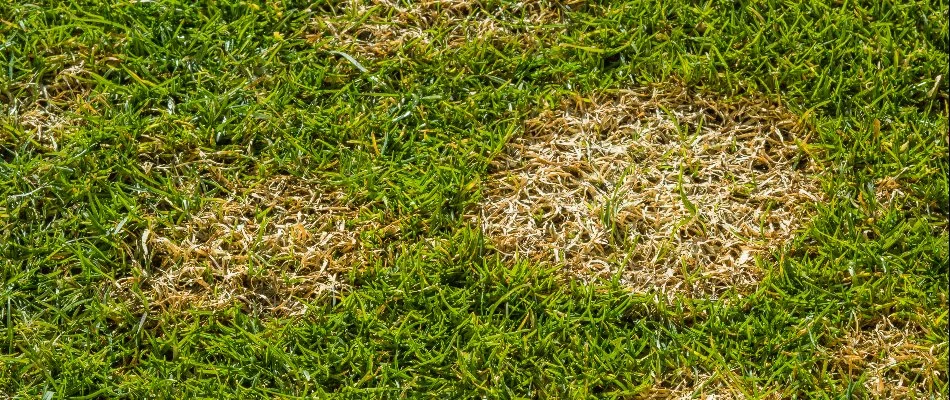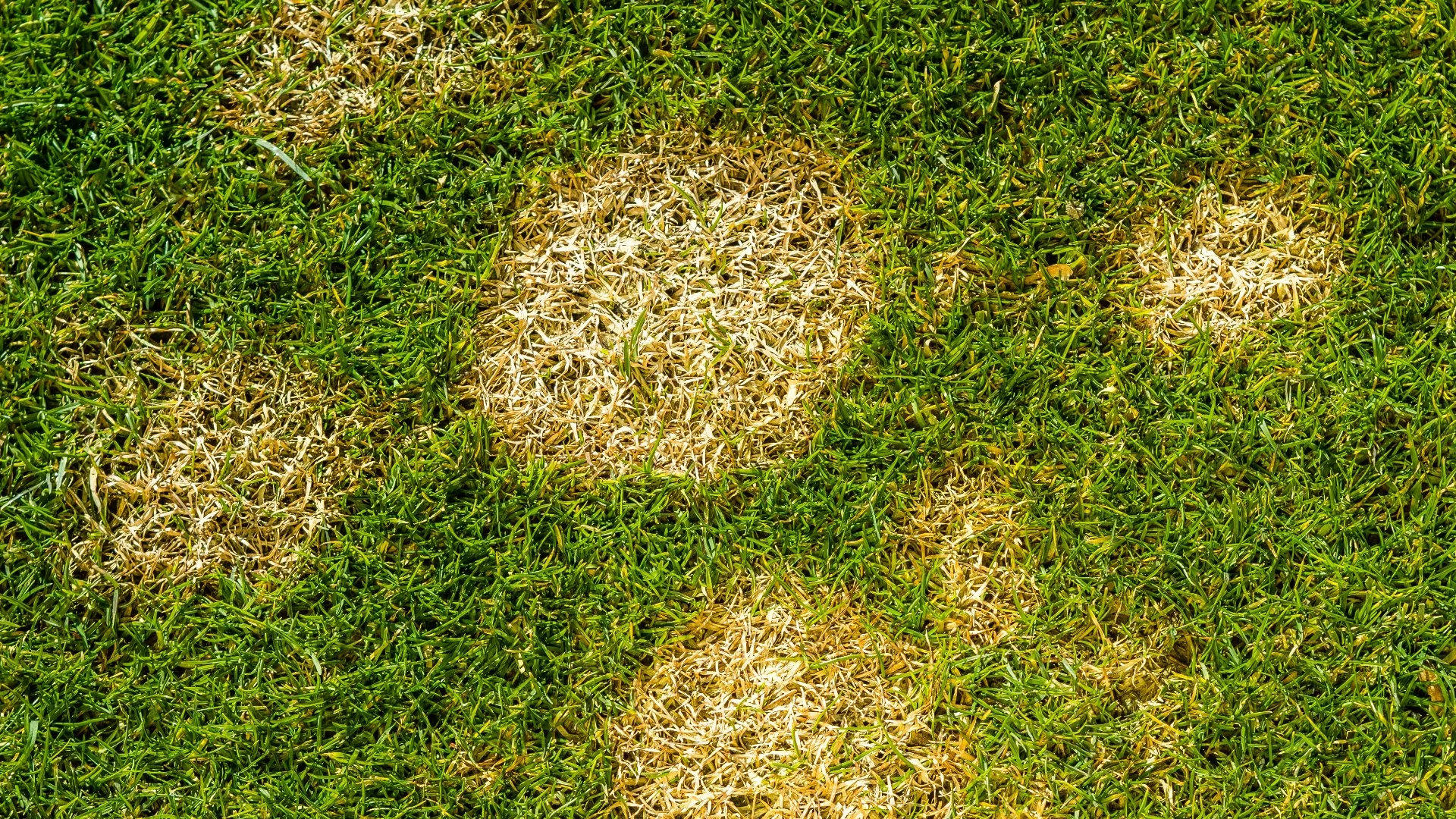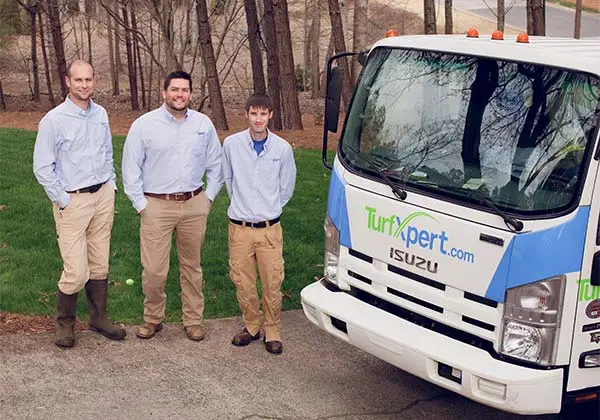If you're a property owner in Georgia and you've noticed unsightly patches of dead grass on your Bermudagrass lawn, you may be dealing with a condition known as “spring dead spot.” This troublesome lawn disease, which often appears after the winter months, can cause significant damage, leaving your lawn looking patchy and unhealthy. Spring dead spot is caused by a fungal pathogen that attacks the roots of Bermudagrass. This results in dead areas as the grass tries to green up in early spring. If you suspect your lawn is afflicted, it's essential to reach out to professionals promptly for curative treatment. Additionally, to aid in your lawn's recovery and prevent future outbreaks, you should consider scheduling services like fertilization, aeration, and overseeding. These practices promote a stronger, more resilient lawn that can better withstand and recover from spring dead spot and other challenges.
Those patches could be the dreaded “spring dead spot.”

If you've been noticing patches of dead grass on your bermudagrass lawn, it's essential to consider the possibility of a common lawn disease known as spring dead spot. This particular ailment specifically targets bermudagrass lawns and can cause significant damage. Spring dead spot is a fungal disease that primarily affects the roots of the grass, making it particularly insidious.
During the winter months, while your lawn may appear dormant, the fungus quietly takes hold beneath the surface. When spring arrives and your bermudagrass should be turning green and vibrant, instead, you'll see unsightly dead patches. These dead spots can range in size from a few inches to several feet in diameter and are characterized by their brown or straw-colored appearance. Not only can spring dead spot mar the overall aesthetic of your lawn, but it can also weaken its structural integrity.
Contact professionals immediately to deal with spring dead spot.
If you suspect that your bermudagrass lawn is afflicted by spring dead spot, it's crucial to take action promptly. This lawn disease can be relentless and quickly spread if left unchecked. Trying to handle it on your own may not yield the desired results, as specialized knowledge and treatments are often necessary to effectively combat this kind of fungus.
Your best course of action is to contact lawn care professionals who are experienced in dealing with spring dead spot. They can accurately diagnose the issue and determine the extent of the damage. Once identified, they can administer curative treatments tailored to eliminate the fungus and promote the recovery of your lawn. Early intervention is key to minimizing the damage and preventing the disease from worsening.
Bringing your lawn back to good health after a spring dead spot infection.
Helping your bermudagrass lawn recover from a spring dead spot infection is a two-fold process that includes restoration and prevention. After you’ve had a professional treatment applied to eliminate the fungus, it's essential to focus on restoring your lawn to its former vitality. Lawn care services like fertilization, aeration, and overseeding can play a pivotal role in this endeavor.
Fertilization provides essential nutrients to your grass, aiding in its recovery and promoting healthy growth. Aeration helps alleviate soil compaction, allowing oxygen and nutrients to reach the roots more effectively. Overseeding involves sowing new grass seeds over the existing turf, filling in the bare spots left by spring dead spot and promoting a thicker, more robust lawn. A denser lawn is better equipped to resist potential reoccurrences of spring dead spot.
Give us a call today to schedule our spring dead spot control service at your property.
Don't let spring dead spot take over your lawn! At TurfXpert, we can help protect your lawn from spring dead spot and deal with current infections via our spring dead spot control service. We can also help your lawn recover from any damage via our lawn care services. We offer these services to property owners in Woodstock, Roswell, Alpharetta, and the surrounding areas of Georgia. Give us a call today at (833) 444-8873 to schedule this essential service and enjoy a lush, vibrant lawn all season long!




Comments (0)
Thanks for your comment!
Thanks for your feedback! Your comments have been successfully submitted! Please note, all comments require admin approval prior to display.
Error submitting comment!
There is a problem with your comment, please see below and try again.